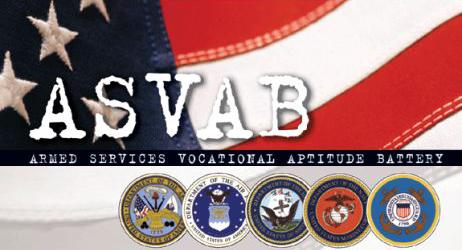The Armed Services Vocational Aptitude Battery (ASVAB) is a series of tests that covers eight separate topics and determines whether you are eligible for the Army and more specialized roles within it.
Your needed knowledge varies by subject, but none is beyond what you can learn at a high school level.
Testing Units
The eight subject areas on the ASVAB are general science, arithmetic reasoning, word knowledge, paragraph comprehension, mathematics knowledge, electronics information, auto and shop information and mechanical comprehension. While the first five subjects are covered in most high schools across America, the last three are slightly more specialized. Electronics information questions often include references to physical topics, such as electrical resistance or currents. The mechanical comprehension section covers some of the same materials, but concentrates on larger-scale physical properties, while the auto and shop information section covers car mechanics and topics related to wood and metal shop.
Science and Math
Because your scores for the arithmetic reasoning and mathematics knowledge sections, combined with your scores on the word knowledge and paragraph comprehension sections, indicate whether or not you may enter the Army, it is very important to study hard for these sections. While the mathematics knowledge section measures your knowledge of math concepts and applications, the arithmetic reasoning section weighs your ability to read paragraphs and arrive at mathematical conclusions. Practice both number math problems and word problems to sharpen your skills in these areas. Your scores on the general science section can help determine what jobs you qualify for in the Army. This section assesses your knowledge of the life, earth, space and physical sciences.
Language Arts Skills
Your scores on the word knowledge and paragraph comprehension sections combine with your math scores to determine your eligibility for joining the Army. They also help recognize possible jobs for you within the Army. These sections test your ability to engage with the written word. You’ll need to be able to look at a sentence or paragraph, know what it means and make determinations based on the content. You’ll also need to be familiar with a wide range of vocabulary words. In addition to studying, simple reading will do a lot to help you be ready. Read a wide variety of books and magazines. They don’t necessarily need to be intensely challenging, but choose a reading level that is slightly above yours; because vocabulary is an important part of testing, exposing yourself to new words and concepts will help you prepare.
Mechanical Know-How
How you score on the rest of the subjects, including the electronics, auto and shop and mechanical sections, indicates what roles you may be eligible for in the Army. If you want to go into combat, field artillery or mechanical maintenance, for instance, you’d do well to study these subjects. To prepare, you can read up on car maintenance and on how machines and electric circuits work, and you can enhance your knowledge of the tools and hardware used in these areas.

